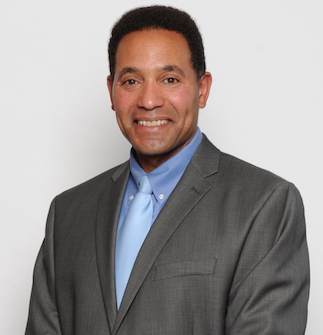Making a Mark on Market Definition in Antitrust Law
BU Law Professor’s amicus brief plays an influential role in Supreme Court case involving American Express.
 When it comes to antitrust law, the size and definition of a market matter. That’s why Boston University School of Law Professor Keith N. Hylton decided to weigh in on a case challenging an American Express contractual provision that prevents merchants from avoiding higher fees by discouraging customers from using their American Express cards.
When it comes to antitrust law, the size and definition of a market matter. That’s why Boston University School of Law Professor Keith N. Hylton decided to weigh in on a case challenging an American Express contractual provision that prevents merchants from avoiding higher fees by discouraging customers from using their American Express cards.
Hylton joined three other experts on the economic analysis of antitrust law in filing an amicus brief in the case when it was before the Second US Circuit Court of Appeals. The Second Circuit cited the amicus brief in its decision, which was upheld by the US Supreme Court on June 25 in Ohio v. American Express Co.
“The big issue in the case is really one of market definition,” Hylton says. “When you’re looking at the credit card network, should you be looking just at the market of merchants who accept those cards or should you be looking at the merchants plus the consumers who hold those cards?”
The case hinges on American Express’ so-called “anti-steering provisions,” which prohibit merchants from encouraging customers to use another credit card so that the merchant does not have to pay the American Express fee, which is higher than other credit card merchant fees. After the US Department of Justice and several states sued American Express over the anti-steering provisions, a federal district court ruled in 2014 that the provisions violate US antitrust laws, including the Sherman Antitrust Act.
The district court found that the credit card market should be treated as two “separate, yet deeply interrelated markets”: one involving customers and one involving merchants. The relevant market in this case, according to the district judge, was the market for merchants, who pay a “swipe fee” every time a customer uses a certain card. The district court found that American Express’ anti-steering provisions reduce competition within the credit card merchant market and allow American Express to maintain its higher merchant fees.
But in their amicus brief, Hylton; Princeton University Professor Robert D. Willig; University of California at Berkeley Professor David J. Teece; and J. Gregory Sidak, founder and chairman of Criterion Economics, a provider of expert economic testimony, argued that credit cards are actually part of what’s known as a “two-sided” or “platform” market” in which multiple users transact over a single platform (other examples of two-sided markets noted in the brief include AirBnB, Uber, Amazon, and eBay). The scholars argued that any analysis of the credit card market must take into account the effects on both cardholders and merchants.
“Consequently, to determine the competitive effect of the challenged conduct, the district court would have needed to balance the welfare gains on the cardholder side of the market against the possible welfare losses on the network services market, so as to determine the net competitive effect,” Hylton and his co-amici wrote.
The Second Circuit quoted from the brief in its decision reversing the district court, and a majority of the Supreme Court affirmed the Second Circuit in its 5-4 opinion last month.
Hylton, who had previously discussed the American Express case as part of a New York State Bar Association event, said he believed the decision was the first time the Supreme Court had weighed in on two-sided markets.
But he said the impact of the case remains to be seen.
“Some courts might read the decision narrowly and say: This is a case about Amex, or this is a case about credit cards,” he said. “But other courts might read it more broadly and say: This is a case about market definition in the context of a platform market. Once you read it in the broader sense, you have implications that apply to a much larger set of cases.”
Market definitions are contentious, Hylton says, because the size and scope of a market may make anti-competitive behavior easier or harder to prove.
“If you take a narrow approach to defining a market, you facilitate enforcement efforts,” he says. “You could say that is a good thing, but, in cases where the enforcement goes too far and prevents firms from undertaking activities that help the market and are good for consumers, then you have to worry about rules that make enforcement too easy.”
Hylton is a William Fairfield Warren Distinguished Professor at BU Law and a noted expert on topics in law and economics, including tort law, antitrust, labor law, intellectual property, civil procedure, and empirical legal analysis. He is currently serving as president of the American Law and Economics Association. In May, he presided over the association’s 28th annual meeting, which was held at BU Law and included sessions on securities market regulation, property, and mergers and acquisitions, among other topics.
Reported by Rebecca Beyer
Related News
- Brett Kavanaugh, Conservative or Constitutionalist?
- First Monday at the Court
- BU Law Welcomes Law & Economics Scholars